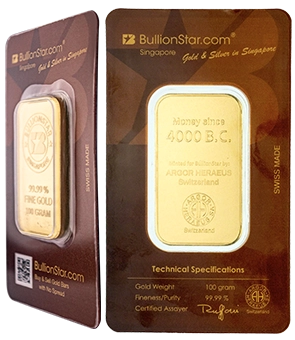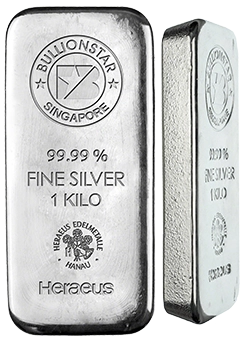Gold Chat About The Chinese Gold Lease Market
As some of you may have noticed Bron Suchecki, manager at the Perth Mint and publisher of the Goldchat blog, wrote a critical article about my recent post on the Chinese gold lease market.
Firstly I would like to thank him for the work he does writing critical articles on blogs in the gold space that have lost touch with reality. From my point of view there is a lot of misleading information out there, if it wasn’t for people like him there would be even more presumably. It’s valuable to have industry professionals participate in blogging to get all angles of the market, which is often displayed as black or white. Bron’s article made me rethink the key takeaway of my initial post and led to more thorough research.
Bron and I had email correspondence today, as we do occasionally on all sorts of subjects, and we agreed it would be best for the debate to respond in a new post for me, so all my readers become notified of my opinion on Bron’s post.
As I have already stated in the comment section on his blog, I didn’t agree with Bron’s Winklebottom point of view, which can distort the perception of his content and turns his writing into a black post. If I ignore his approach I can reply on the content:
1) While twisting a bit Bron suggests the PBOC might manipulate the price of gold through gold leasing. From his article [brackets added by me]:
However, in some sense my headline [PBOC paper recommends leasing its reserves to manipulate gold price] is true, although not that PBOC is explicitly short selling gold. In the paper they recommend that “enterprise participants can be left to commercial banks to be evaluated for risk of doing business, not unlike evaluating business loans.” In other words, you can trust the banks to be prudent in choosing who to lend gold to. Subsequent events indicate that Chinese banks weren’t so prudent, the result being “bad” leasing for short selling.
His headline is not true in my opinion, because the Chinese gold market is in the process of opening up, but gold export (in general trade) is still prohibited in China.
2) I agree with Bron in the Chinese gold market there is also “bad" leasing, as I described in the third simplified example in the introduction of my post (including a link to my article from January 21 explaining these practices in China). More on this later.
3) In the sixth paragraph of his post he states Chinese gold leasing involves round tripping. While leasing and round tripping can be both categorized as Chinese Commodity Financing Deals (CCFD), they are two completely different procedures. I’ve written extensively about this in Chinese Gold Trade Rules And Financing Deals Explained. This post clearly explains round tripping has got nothing to do with the Chinese domestic gold market (the SGE) or with the Chinese gold leasing, as the latter is always done through the SGE. However, Bron entangles leasing with round tripping, leading to incorrect conclusions.
4) Moving on to the most important part of the discussion; is leased gold double counted in China? On SGE level certainly not, on balance sheets it can be; I edited my previous post on this subject as it was inaccurate in the way presented at first.
After reading Bron’s post I read some more bank documents, had a interesting phone call with ICBC’s precious metals trading desk and emailed with my regular sources in the mainland. There’s always much more to learn when continuing to dig deeper. At this stage this is what I know and what I don’t know:
It’s clear all leases are done through the SGE where there can be no double counting (either you have gold in your SGE Bullion Account or not). The lessor and lessee are both required to have an SGE account. What I don’t know is how all parties involved disclose the transactions on their balance sheet. Let’s look at some examples of lease procedures.
The ICBC precious metals trader I spoke to told me ICBC has little gold of itself to be leased, most of their leased gold is used from third parties. These parties are either SGE members, such as refineries, or overseas banks that supply gold through the Chinese OTC market. He didn’t know how his lease trades were processed by ICBC’s accountants. I’ll try to call the accountants, though I’ve been warned they might not speak English.
Another source in mainland China wrote me:
The wholesale OTC gold market in China is done through SGE accounts. The two parties negotiate off the SGE (usually through the CFETS – China Foreign Exchange Trade System) but gold is settled through SGE accounts.
While speaking to the ICBC employee I passingly discussed the possibilities for BullionStar to open a Shanghai International Gold Exchange (SGEI) account. Through this account BullionStar could trade physical gold in the Shanghai Free Trade Zone (FTZ), with the option to export, or trade gold in the mainland, without having the option to export. (read this post for the workings of the SGEI). If BullionStar would have gold credited to its SGEI account in the mainland we would have the option to lease it through ICBC, I was told.
Are there more ways for ICBC to source gold for leasing? Maybe.
Any Chinese citizen can walk into an ICBC branch to open a personal SGE account through ICBC as its broker (this is one of the precious metals products ICBC offers to customers). However, gold that is credited to a personal SGE account is impossible for ICBC to use at its own discretion for leasing.
Another ICBC gold product is Ruyi Gold. Through this product customers can save at the bank (or withdrawal) Ruyi bank bars, which are not standard SGE gold bars. For this reason Ruyi Gold deposits are also impossible for ICBC to touch for leasing.

Than there is ICBC’s Gold Accumulation Plan, “launched by ICBC partnered with the World Gold Council". No SGE account is required for the Gold Accumulation Plan. From ICBC:
The Gold Accumulation Plan is a service for customers who open Gold Accumulation Plan accounts at ICBC and sign the accumulation agreement to buy ICBC gold asset equity in regular periods…
Though I have no hard evidence, the Gold Accumulation Plan smells a bit like unallocated gold. Possibly ICBC might use a fraction of the Accumulation Plan gold pool to lease (pure speculation!).
Conclusion
What stood out for me after additional research was that ICBC, and perhaps the other Chinese banks involved in leasing as well, is mainly an intermediary that facilitates between lessor and lessee, while striking a fee on all transactions. Consequently I think every lease (ex fee) would increase ICBC’s assets and liabilities by the same amount on their balance sheet. How the actual lessor and lessee handle their balance sheet I don’t know. Maybe Bron would knows more, if I recall correctly he has a background in accounting.
There is a lot more to learn on this topic that I surely will publish in forthcoming posts. Anybody how has additional sources, further data, or a different interpretation, please feel free to comment below.
Popular Blog Posts by Koos Jansen
 China’s Secret Gold Supplier Is Singapore
China’s Secret Gold Supplier Is Singapore
 Audits Of US Monetary Gold Severely Lack Credibility
Audits Of US Monetary Gold Severely Lack Credibility
 China Gold Import Jan-Sep 797t. Who’s Supplying?
China Gold Import Jan-Sep 797t. Who’s Supplying?
 The Gold-Backed-Oil-Yuan Futures Contract Myth
The Gold-Backed-Oil-Yuan Futures Contract Myth
 Estimated Chinese Gold Reserves Surpass 20,000t
Estimated Chinese Gold Reserves Surpass 20,000t
 Did The Dutch Central Bank Lie About Its Gold Bar List?
Did The Dutch Central Bank Lie About Its Gold Bar List?
 PBOC Gold Purchases: Separating Facts from Speculation
PBOC Gold Purchases: Separating Facts from Speculation
 U.S. Mint Releases New Fort Knox Audit Documentation
U.S. Mint Releases New Fort Knox Audit Documentation
 China Net Imported 1,300t Of Gold In 2016
China Net Imported 1,300t Of Gold In 2016
 Why SGE Withdrawals Equal Chinese Gold Demand and Why Not
Why SGE Withdrawals Equal Chinese Gold Demand and Why Not






 Koos Jansen
Koos Jansen










